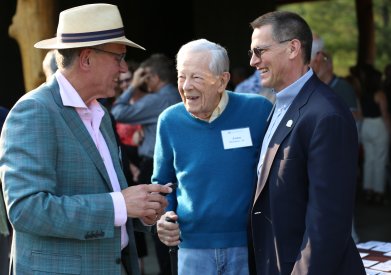When Self-Promotion Crosses into Unprofessionalism
October 20, 2014
As a physician, is it possible to remain professional and market yourself? While it is understandable that physicians and physician researchers need to promote themselves to get jobs, patients, research grants etc., it should never come at the cost of patient care or trust.need to be able to trust that their physician is competent and he or she has their best interest in mind. Primacy of patient welfare, a principle of the Physician Charter, posits that physicians should be dedicated to serving the interest of the patient and not be compromised by things such as societal pressures and market forces. While self-promotion may be necessary in some situations, it should never come at the cost of patient trust. Two recent high-profile cases highlight egregious examples of self-promotion degenerating into unprofessional behavior.
Anoop Shankar, a well-respected physician researcher, believed to be an MD PhD, was set to become the Chair of the Epidemiology Department at West Virginia University. Dr. Shankar’s impressive curriculum vitae (CV) highlighted his many publications and degrees from top-tier schools. Such an exceptional CV surely helped him gain prestigious appointments and grants. Recently, however, it has been found that Dr. Shankar lied about his achievements. A simple background check revealed that he had not written many of the publications he listed as ones he had authored. In fact, at least one of them had been written the year he was born. Further digging found that he did not attend the medical school he claimed to have attended, nor has he ever received a PhD in epidemiology. When confronted with the allegations of a falsified CV, Dr. Shankar allegedly tried to discredit his accuser by having one of his students claim that the accuser had sexually harassed him.
Dr. Shankar’s behavior may have started as a way to secure jobs and research grants, but is so unprofessional it calls his judgment into question. Dr. Shankar’s lies violate the public’s trust in academic physicians and research. If Dr. Shankar is willing to lie on his CV for more prestige, who is to say he did not also falsify his research results? Everything Dr. Shankar has put his name on will now need to be reviewed to ensure accuracy. Can we be sure he is the only one in the field who has acted this way? How does this affect the public’s trust in scientific research?
Another physician whose self-promotion ventures into the field unprofessionalism is Dr. Bob Sears. “Dr. Bob,” as he is often referred to, is the author of The Vaccine Book: Making the Right Decisions for Your Child. In his book, he states that vaccines are safe and work well, but feels that parents do not need to vaccinate their children if they do not want to because of herd immunity. Herd immunity posits that if most of a population is immunized, the spread of contagious diseases is halted, and thereby those who are not immunized are protected. Herd immunity is a wonderful thing for those who cannot get vaccinated or are immunocompromised, but it only works if members of the larger community take on the responsibility to get immunized.
As a recent public health graduate working in the field of professionalism, I was appalled to read his statement at a recent conference,
“I do think the disease danger is low enough where I think you can safely raise an unvaccinated child in today’s society. It may not be good for the public health. But … for your individual child, I think it is a safe enough choice.”
My questions to Dr. Bob are, what is safe enough? Does he tell this to all his patients? What will he tell the parent whose child contracts a vaccine-preventable disease? These are legitimate questions for Dr. Bob considering vaccine-preventable illnesses are on the rise again and the number of unvaccinated kindergarteners in California, where he practices, has nearly doubled in the past seven years.
Dr. Bob’s patient panel is largely made up of wealthy families who do not want to vaccinate their children or want to do so on a different vaccine schedule than that recommended by the Centers for Disease Control and Prevention, the American Academy of Pediatrics and the American Academy of Family Physicians. These families like Dr. Bob because he leads them to believe that their children will be safe without vaccines or by using his vaccine schedule, that latter of which is based in questionable science.
Dr. Bob is creating a niche practice for himself and quite a following through his book and conferences. The problem is that he agrees with the science that vaccines are safe and knows these vaccine-preventable diseases are dangerous and yet continues to make money and a name for himself by telling people their children will be safe without vaccines. When explaining why vaccine-preventable illnesses are on the rise, I believe Dr. Paul Offit, Chief of Infectious Diseases at Children’s Hospital of Philadelphia (CHOP), put it best:
“… Because people listen to Bob Sears. And, frankly, I blame him far more than I do the Jenny McCarthys of this world. Because he’s a doctor. And he should know more.”
Self-promotion may be necessary to start a career or get a grant, but it is damaging to public trust and patient welfare when it is taken well beyond the confines of professionalism, Drs. Shankar and Sears have clearly crossed the line.
Alison Brecher
ABIM Foundation


